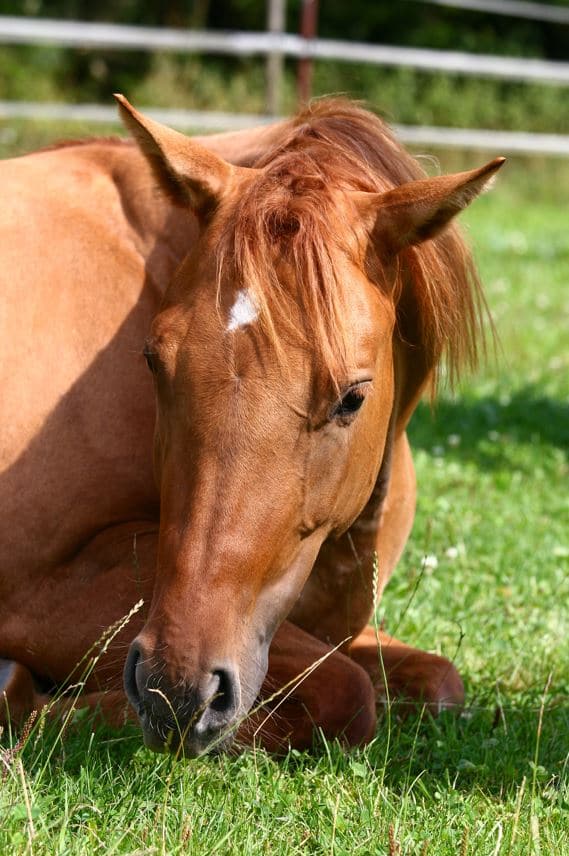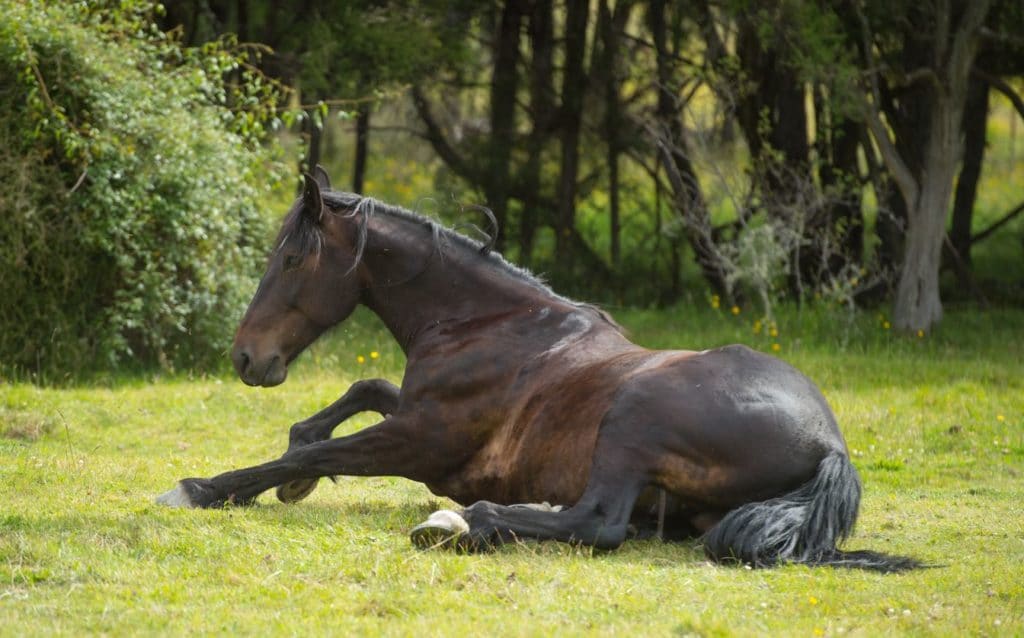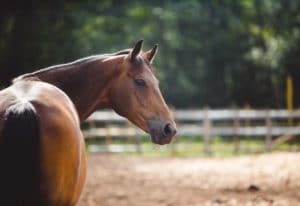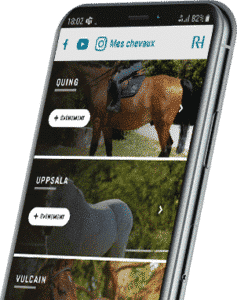The balance of the intestinal flora is particularly delicate in horses. Equine colic is one of the most common conditions in horses. As such, it is important to know what causes it, the different aggravating factors of horse colic, how to recognize it and how to avoid it.
THE DIFFERENT CAUSES OF COLIC IN HORSES
The word colic refers to any stomach ache in a horse. This can range from a simple intestinal pain to very serious torsion that can lead to death. The particularity of the digestive tract of the horse is that it is very particularly long (the horse has, indeed, a small intestine of 20 meters and a colon of 7 meters!). Many disorders can appear at any time.
Horse colic (intestinal spasms) can have different causes:
- Irregular feeding hours
- Excessive feeding
- Insufficient number of feeds
- Fluctuating rations
- Too much protein (alfalfa, soy, etc.), starch (grain), sugar (carbohydrates) in relation to daily requirements and horse weight
- Quality of horse feed (moldy, dirty hay, etc.)
- Insufficient amount of hay
- Over-ingestion of inedible artificial bedding or straw
- Quality and quantity of water available each day, as well as the temperature of the water
- Water consumption after exercise (water should be at room temperature).
A balanced diet (composed of horse feeds with or without concentrates), given in the right quantities and at regular times, is therefore essential in preventing colic.
Certain aggravating factors can cause colic in horses, such as weather conditions (sudden changes in temperature, stormy weather, etc.), horses with tics (such as air tic), intestinal parasitism, etc.

TYPES OF COLIC IN HORSES


There are many types of colic, the most common of which are :
- Blockages: as the name suggests, this type of colic is nothing more than blocked contents, most often in the colon. If this content does not advance in the digestive system, it is because it is not liquid enough. It blocks the entire digestive tract and the dung accumulates without being able to move forward. It can dissipate by itself, but sometimes it will be necessary to use laxatives, such as paraffin oil.
- Displacement: in this type of colic, the contents are too heavy and drag the digestive tract downwards. Because of this displacement, the transit can be affected and no longer be done properly. Infusions and paraffin oil can solve the problem, but surgery is sometimes necessary.
- Colon torsion: here, the colon twists on itself 180°, compressing the blood vessels that irrigate it. This causes the blood circulation to stop, which puts the horse in absolute emergency. In this case, only surgery can save him.
- Small bowel obstruction: This case of colic means that the intestine becomes knotted around itself or another organ. It is characterized by intense pain for the horse.
HOW CAN I PREVENT COLIC IN MY HORSE?
Any horse can be prone to this type of disorder. Therefore, colic prevention is an important part of your routine with your horse.
- Give your horse sufficient quantities of forage (about 1.5% of the horse’s live weight). You can find on this site a simple calculator to estimate the weight of your horse
- Split the daily ration into several meals (2 or 3 meals) to never exceed 3L of food per meal, if this is not possible because your horse has high energy needs switch to a food richer in energy which will allow you to cover its needs with a smaller amount. An interval of at least 4 hours between each meal is recommended.
- Whenever possible, allow your dog to go out to the paddock or pasture and to be free to roam, as confinement increases the risk of gastric problems.
- Provide plenty of clean water, avoid leaving your horse without food (irregular distribution) for long periods and make sure there is always forage available.
HOW TO RECOGNIZE COLIC IN HORSES?
There are several symptoms that may indicate that your horse is potentially suffering from colic, including: not eating, flehmen (curling the upper lip), looking down, scratching the ground, arching, looking at the flanks, lying down or throwing himself on the ground, abnormal sweating, rapid breathing, or unusual agitation. If in doubt, don’t hesitate to call a veterinarian. If your horse is rolling or lying down, try to get him to walk as much as possible until your veterinarian arrives. Walking may help to stimulate bowel movements and help him relax.
ROYAL HORSE SOLUTIONS TO AVOID COLIC IN HORSES
A bad adapted and not reasoned food can be a factor of triggering of colics. The Royal Horse feed offers balanced products and a wide choice, to adapt to all types of horses or ponies whatever their use or their physiological stage. Two important points going in the digestive well-being of the horses are present in all the Royal Horse feeds: it is the systematic use in all our formulas of prebiotics (M.O.S =Mannan-oligosaccharides) real bio-regulator of the intestinal flora which secure the intestinal transit, and the constraint of limited starch to prevent gastric problems and to fight against the acid effect of ration too rich in cereals. All the Royal Horse offer has been conceived to complement a forage ration at a rate of 1,5kg for 100 kg of live weight of your horse (these rations are to be modulated according to the quality of the forage and the activity of the horse).



